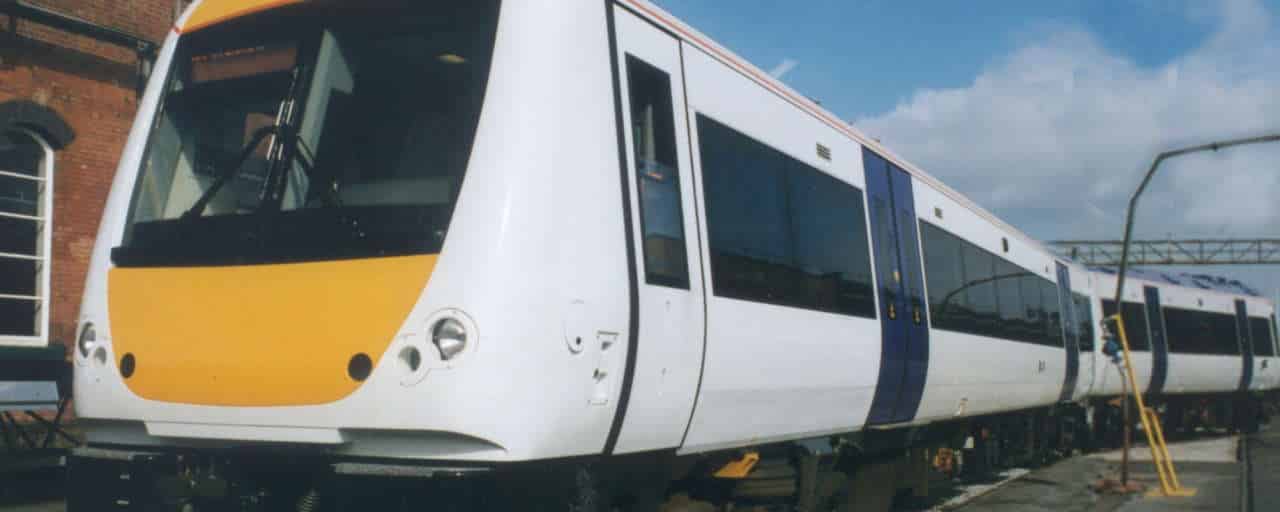Porterbrook has announced that it has received funding for the trial fitment of technology to reduce emissions on its fleet of Class 170 DMU trains.
The £400,000 funding will see the Class 170 ‘Turbostar’ trains, which are in operation with East Midlands Railway, fitted with Eminox SCRT technology.
The aim of the trial is to evaluate whether the technology can deliver reduced CO, hydrocarbons and NOx emissions making them more environmentally friendly and offer improved air quality for passengers, staff and communities served by East Midlands Railway.
Porterbrooks instalment of the technology is supported by the Department for Transport through a £400,000 grant via the Innovate UK’s first-of-a-kind funding.
The EMR trial builds on the recent trial of Eminox catalytic-converter technology on South Western Railway Class 159 DMUs.
Rail Minister Chris Heaton-Harris said: “The success of this trial in reducing harmful emissions underlines the importance of the First of a Kind competition, which funds pioneering projects to support better, more environmentally friendly rail journeys.
“Reducing the railway’s environmental impact and supporting decarbonisation is a priority for this Government. Harnessing innovation like this will be crucial in making our railways greener and cleaner in the future.”
Mary Grant, CEO of Porterbrook, said: “As a rolling stock asset management business, Porterbrook takes seriously its responsibility to develop innovative ways of reducing emissions. We are particularly pleased to be able to do this by drawing on proven technologies.
“Porterbrook believes by partnering with our customer East Midlands Railway and after-treatment specialists, Eminox, we can accelerate the delivery of cleaner and more environmentally friendly trains to Britain’s railways.”
Neil Bamford, Fleet Director at East Midlands Railway, said: “We are pleased to be working with Porterbrook on this exciting new trial. If successful, it could enable our fleet of 170s to run in a more environmentally friendly way and provide benefits to our passengers, staff and the communities we serve.”
It is expected that the technology will be installed on EMR 170s in early 2021, with the trial taking place over three months.
The technology is likely to be installed on other Class 170s around Britain, including those with Northern and ScotRail, once the trial is finished.
Porterbrook is working with Eminox, Bosch Rexroth and DG8 to install and monitor the technology.
Where Next?
RailAdvent Plus
Get image downloads, Prints and Streaming Video
News Homepage
For the Latest Railway News
RailAdvent Online Shop
Framed Prints, DVD’s / Blu-Ray’s and more
LocoStop Community
Come and share your railway pictures
Mainline Steam Info
Upcoming mainline steam tours/loco movements
Porterbrook
Visit their website






Responses
Perhaps Class 168, Class 171 and Class 172 Turbostars should also have emission technology installed. Along with other existing DMUs including Class 150, Class 153, Class 155, Class 156, Class 158, Class 159, Class 165, Class 166, Class 180 and Class 185.
I think they should, yes. SCRT seems to imply Selective Catalytic Reduction Technology also known as AdBlue exhaust aftertreatment which is already on 195s and 800s etc on the rails, as well as the majority of large road vehicles (buses / lorries) built from 2007 to present and even some newer Diesel vans and large Diesel cars.
good for the environment / health, but “DMU clag” will be gone 🙁
Couldn’t agree more.
What about new emission technology on the Northern, Transport for Wales and ScotRail Class 170s and on the Chiltern Railways Class 165 & Class 168, Southern Class 171 and West Midlands Railway Class 172 Turbostar DMUs. And Class 379 Electrostars to be converted and modified to as “Hydrogen” MU and nicknamed as “Hydrostar”. As Greater Anglia are to replace the Class 379s with the Class 745/1 on the Stansted Express service and Class 720/1 & Class 720/5 on the West Anglia services throughout this year.